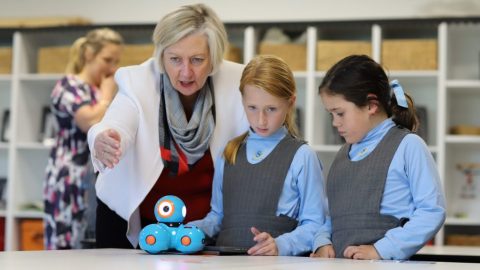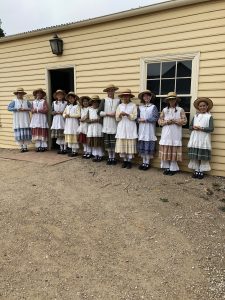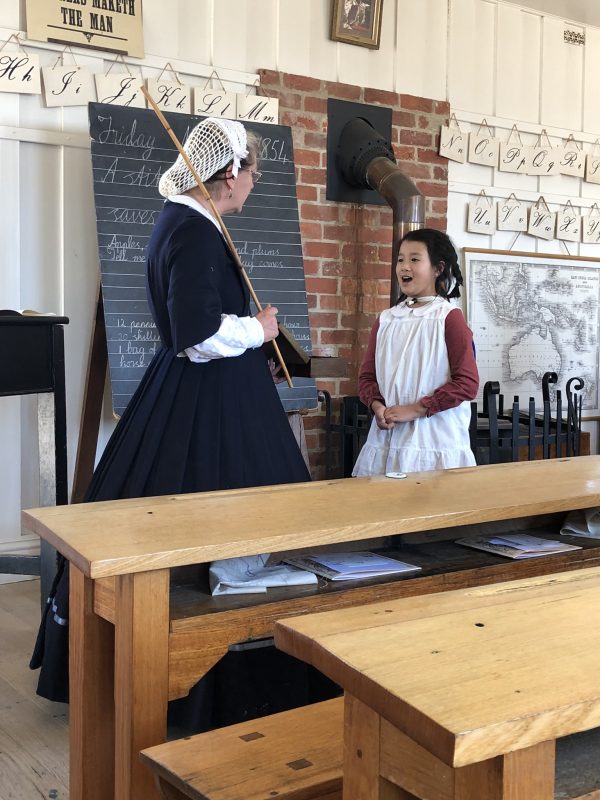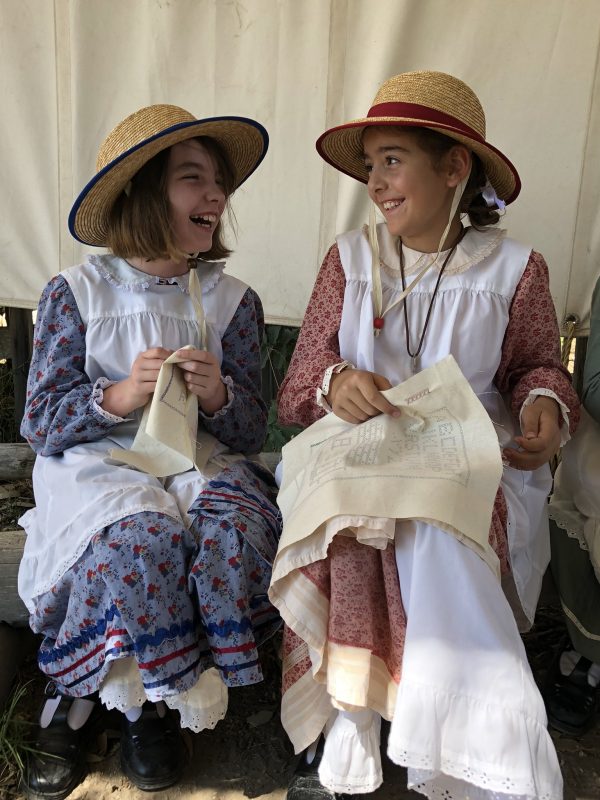Anxiety About Mathematics

While girls score similarly to boys at both the primary and secondary levels in standardised tests, boys are much more likely than girls to choose careers that are mathematically-based, such as Engineering and Computer Science. Current research suggests anxiety is one of the reasons fewer girls enter mathematically rich fields of study.
Colleen Ganley and Sarah Lubiensk (2016) state that ‘even from a fairly young age, girls are less confident and more anxious about Math than boys.’ They go on to say that ‘there was a potential reciprocal relation between Math achievement and confidence, and that early Math achievement predicted later Math attitudes and Math achievement.’
Their research is supported by Ashcraft & Krause, 2007; Devine, Fawcett, Szűcs & Dowker, 2012; Foley, Herts, Borgonovi, Guerriero, Levine & Beilock, 2017 who claim that ‘experiencing difficulties in understanding Mathematics is widespread and those difficulties can and often do cause anxiety.’
The answer therefore lies in reducing the anxiety levels of girls in relation to Mathematics and, as a result, increasing their confidence. So how do we go about doing this?
Clare Lee and Sue Johnston-Wilder, 2017, believe that developing Mathematical resilience is the answer. Unlike other subjects, Mathematics is very specific and requires the learner to learn, apply and transfer their new knowledge to new problems constantly. It is a subject with much rigor and requires the learner to struggle a little and to demonstrate perseverance. In other words, they need to work outside of their comfort zone.
Lee and Johnson-Wilder state ‘in the growth zone, students will be learning and as a consequence they will feel challenged and that they have to struggle to understand.’ It is in this zone that students may feel ‘at risk’, feel uncomfortable and make mistakes – leading to anxiety. They often feel they are the only ones feeling this. Their feelings can also lead to Mathematics avoidance which exacerbates anxiety and likelihood of success.
Developing an understanding that their feelings while in the ‘growth’ zone are ‘normal’ for all learners, especially Mathematics learners, leads to resilience and the belief that if they keep persevering, they will learn and have success.
Teachers work hard to instil in students a self-belief that they will be successful Mathematics learners. When students say “I cannot do it”, teachers will often respond with “You cannot do it YET!” Parents play an important role in helping to instil this belief. Always being positive about Mathematics learning, telling stories of how they too struggled but eventually achieved success, offering words of encouragement and restating that a struggle means they are in the ‘growth’ zone, lets them know their feelings are normal and, with perseverance, they will learn and achieve success.
References:
- https://www.m-a.org.uk/resources/Equals-22-3.pdf
- https://www.nctm.org/Publications/Teaching-Children-Mathematics/Blog/Current-Research-on-Gender-Differences-in-Math/
- https://www.sciencedirect.com/science/article/pii/S1041608016300024
- https://experts.illinois.edu/en/publications/mathematics-confidence-interest-and-performance-examining-gender-
Year 6 Transition to Year 7 2020
Commencing Senior School signifies a time of growth and tremendous possibilities, a time to seize every opportunity. Our transition program for Year 6 transition to Year 7 in 2020 is one of fundamental importance for our students as it ensures they are fully supported as they begin their learning journey.
To confirm your attendance at the following programs, please register via the following link: https://stcatherines.formstack.com/forms/2020_year_7_orientation
Term 2
Tuesday 28 May 2019, 8.45am – 12noon
Year 7 (2020) Student Introduction to Senior School (Ballroom).
Tuesday 28 May 2018, 8.45am – 9.45am
Year 7 (2020) Parents ‘Coffee with the Principal” in the Cafe
Term 3
Wednesday 7 August 2019, 8.45am – 3.00pm
Academic Assessment Testing (am)/Student Activities (pm)
Term 4
Wednesday 13 November 2019, 8.45 am – 3.00pm
Year 7 (2020) Student Orientation Day
Wednesday 13 November 2019, 7.00pm
Year 7 (2020) Parent Information Evening (Ballroom)
Ms Karen McArdle, Head of Junior School
Year 5 Sovereign Hill Study Tour
The Year 5 students have been reflecting on their recent trip to Sovereign Hill. This three day study tour provided a rich learning opportunity, where students experienced life as it was during the Gold Rush period of the 1850s. The students and teachers dressed in full costume and became a part of the live museum at Sovereign Hill. During their time away, the students explored the gold mining township through various activities and attended the new sound and light show, Aura.

St Catherine’s Year 5 students ready for a day of learning at the Red Hill National School, Sovereign Hill.
Sovereign Hill study tour was really interesting! School was very different in those days because the teachers were so strict! If you were naughty or answered incorrectly, you would get the cane. There were no whiteboards or technology, and the chairs were extremely uncomfortable. The best part of school was dressing up in the olden day clothes and seeing the teachers dressed up in their costumes too! Luckily, the inspector did not come and visit our class to see if our needlework and writing was good enough. – Mila Heng.
There were so many activities to take part in at Sovereign Hill. I learnt a lot of information about the Gold Rush and life in those days. I really enjoyed the underground mine tour. We climbed onto an open-air tram and travelled in complete darkness. You really could not see anything! We arrived underground, our tour guide took us through the mines where we saw replicas of the old mine shafts. It also included a special story about two Chinese miners and the jade coin. It was a great study tour! – Kaixuan (Isabelle) Cao.
Aura was amazing! It is the new sound and light show at Sovereign Hill. At the beginning of the show, you wear 3D glasses and you watch a short film about how gold appeared on Earth. Then you go outside, ride on a shuttle bus and arrive at the Indigenous Outdoor Theatre to get another perspective of gold’s arrival on Earth. The final section of the night was the best. It was a live performance with screens and effects all about the life at the Ballarat Goldfields and the Eureka stockade. – Scarlett Evans.
-

Mila Heng in character at the Red Hill National School, Sovereign Hill.
-

Isabella Ayre and May Aiello enjoying their needlework.



